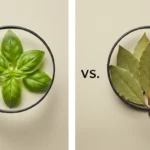Eight years ago, I, Kalsoom Imran, nearly sunburnt my first basil plant to a crisp, thinking more sun was always better. Turns out, that’s not quite the whole story, and it got me wondering, does basil like full sun, or is there a sweet spot?
Alright, let’s talk basil. That fragrant, leafy herb we all love to sprinkle on our pizzas, stir into our pasta sauces, and maybe even sneak into a refreshing summer cocktail. I’ve grown basil for years, and if there’s one thing I’ve learned, it’s that understanding its sunlight needs is absolutely crucial for a happy, healthy plant. So, let’s dive into the world of basil sun requirements and figure out what this sun-loving herb really needs.
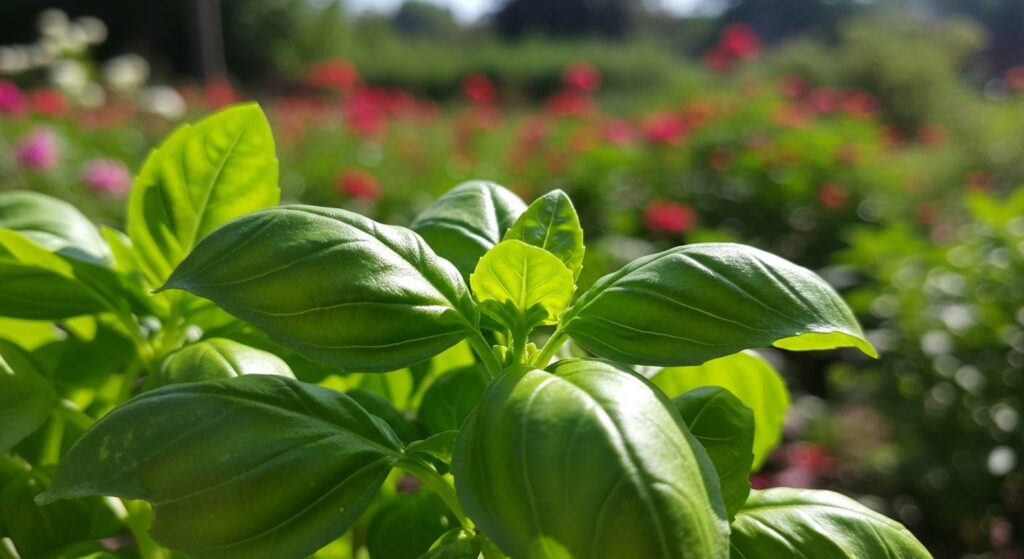
Basil Sun Requirements: The Basics
How Much Sun Does Basil Prefer?
If you’ve ever wondered, “how much sun does basil prefer?” you’re not alone. It’s a common question, and the answer is pretty straightforward: basil loves a good dose of sunshine. We’re talking at least 6 to 8 hours of sunlight daily for best results. Think of it like this – basil is a bit of a sun worshipper.
It thrives when it gets plenty of those warm, golden rays. When I first started growing basil, I underestimated this and placed it in a spot with only partial sun. The result? A leggy, pale plant that didn’t produce nearly as many leaves as it should have. I quickly learned my lesson!
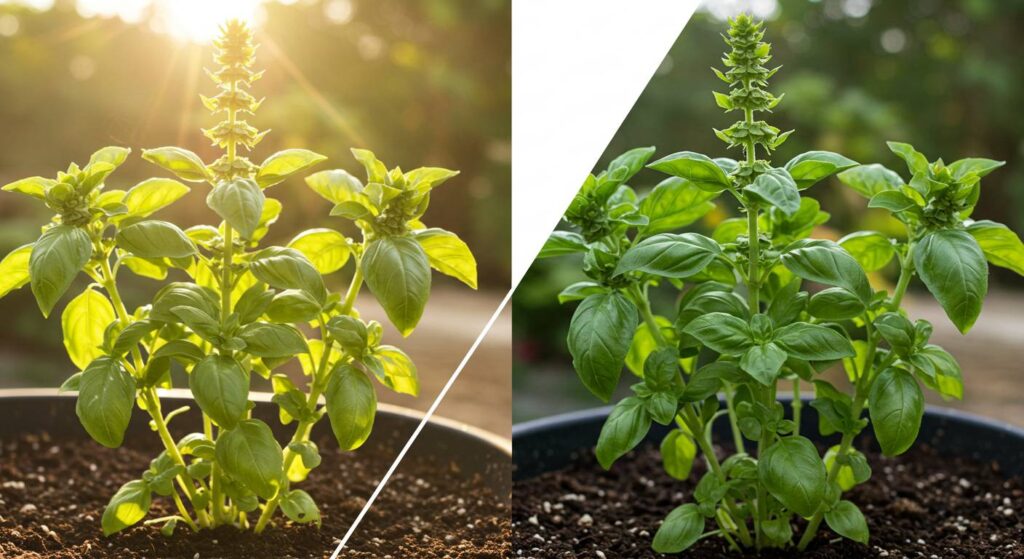
Basil Sunlight Needs: A Detailed Look
Now, let’s get a little more specific about basil sunlight needs. It’s not just about the hours, but also the intensity of the light. Basil prefers bright, direct sunlight. This means those rays need to be hitting the plant pretty directly for most of the day.
If your basil is in a shady spot, it might survive, but it won’t flourish. You’ll notice the difference in the plant’s overall health, leaf color, and even the potency of its flavor. I once had a basil plant that was getting only a few hours of morning sun, and while it grew, the leaves were thin and lacked that vibrant green hue. It just wasn’t the same as the plants that were basking in the full afternoon sun.
Does Basil Need Direct Sunlight?
Basil Growing in Full Sun: What to Expect
So, does basil need direct sunlight? The short answer is, yes, it absolutely does. Basil growing in full sun will be a much more robust, productive plant. You can expect it to be bushier, with richer green leaves and a more intense aroma.
When basil gets the sunlight it craves, it’s like giving it a supercharge. It’s more resistant to diseases, and it produces more of those flavorful leaves we all love. I’ve seen my basil plants practically explode with growth when they’re in a full sun location. It’s truly amazing what a difference the right amount of light can make.
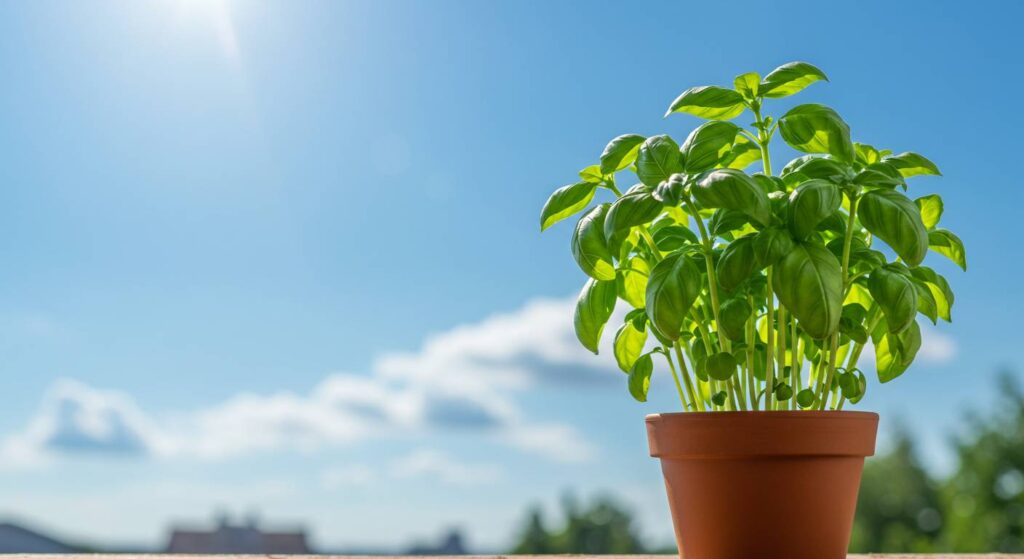
Basil Light Exposure: Finding the Right Balance
The key here is finding the right balance. While basil loves sun, it can get too much of a good thing. Basil light exposure should be monitored, especially in the hottest parts of the day. If you live in an area with intense afternoon sun, you might need to provide a little afternoon shade to prevent the leaves from scorching.
I’ve found that a bit of dappled shade during the peak heat hours can be beneficial, especially for younger plants. It’s all about observation and adjusting to your specific environment.
Sunlight for Basil Plants: Ensuring Healthy Growth
Basil Best Sun Conditions for Optimal Growth
For basil best sun conditions, think bright, direct sunlight for at least 6 hours a day. This is what will lead to optimal growth. The more sun, the better, generally speaking. However, keep an eye on your plant, and if you see any signs of stress, like wilting or scorched leaves, adjust its placement accordingly.
I’ve learned that sometimes the best spot isn’t always the most obvious spot. It’s about finding the sweet spot where your basil gets plenty of light without getting overwhelmed.
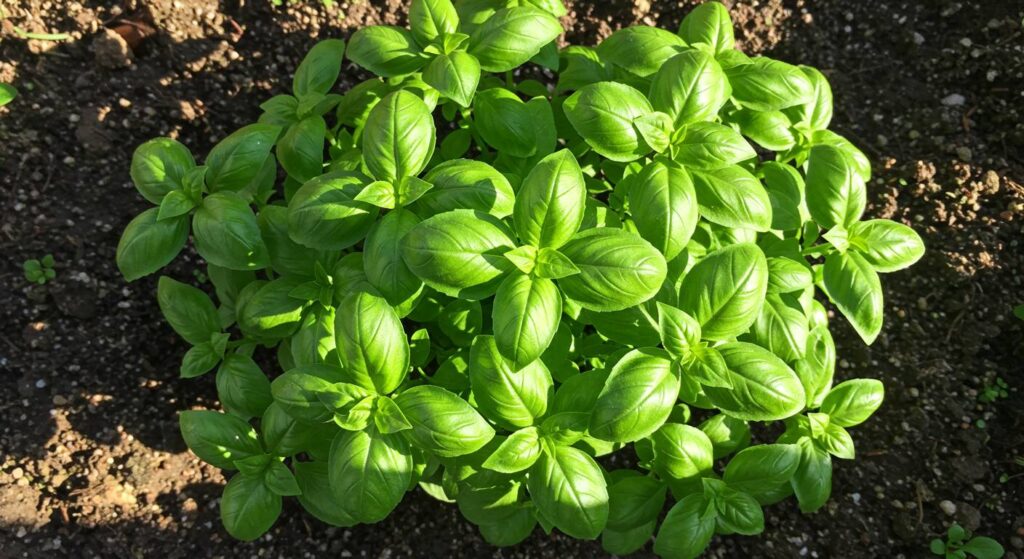
Basil Sun Loving: Why It Matters
Basil sun loving nature is directly tied to its ability to produce essential oils, which give it that characteristic aroma and flavor. When basil gets enough sun, it can photosynthesize efficiently, producing the compounds that make it so delicious and fragrant.
Think of it like this: the sun is the fuel for basil’s flavor engine. Without enough sun, the leaves will be less flavorful, and the plant will be weaker overall. I’ve tasted the difference myself – basil grown in full sun is simply more flavorful and aromatic.
Is Basil a Full Sun Plant? Understanding the Nuances
Basil Sun Preference: What Type of Sun is Best?
So, is basil a full sun plant? Yes, it is, but with a few nuances. When we say “full sun,” we mean at least 6 hours of direct sunlight. However, the type of sun also matters. For instance, morning sun is often gentler than the intense afternoon sun.
Basil sun preference leans towards a combination of morning and afternoon sun, with perhaps a little shade during the hottest part of the day in very hot climates. I’ve found that my basil plants do best when they get a good dose of morning sun followed by some afternoon sun, with a bit of shade in the late afternoon.
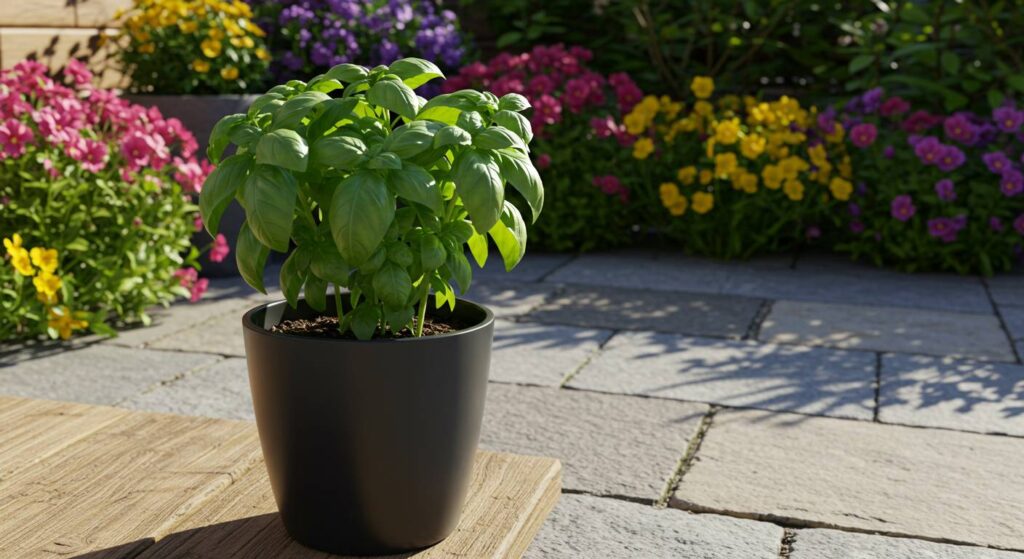
Basil and Direct Light: Avoiding Sunburn
While basil loves direct light, it’s important to be mindful of potential sunburn. Basil and direct light can sometimes be a tricky combination. If your basil is suddenly exposed to intense sun after being in a shaded spot, it might get scorched. This looks like brown, dry patches on the leaves.
To avoid this, gradually acclimate your basil to full sun. Start by placing it in a partially sunny spot and then slowly move it to a sunnier location over a few days. This gives the plant time to adjust and prevents those unsightly burns.
Sunlight Requirements for Basil: A Summary
Basil Needs Sun: The Importance of Light
Let’s recap: basil needs sun, and lots of it. Light is absolutely essential for basil’s growth, flavor, and overall health. Without adequate sunlight, your basil plant will struggle, and you won’t get the abundant, flavorful leaves you’re hoping for.
Think of sunlight as basil’s primary food source. It’s what fuels its growth and development, so skimping on light is like starving your plant. I’ve seen firsthand how a plant that was struggling in a shady spot can completely transform when moved to a sunny location.
Optimal Sun for Basil: Achieving the Best Results
To achieve the best results, aim for optimal sun for basil, which is at least 6 to 8 hours of direct sunlight daily. Monitor your plant, and adjust its location as needed to ensure it’s getting the right amount of light. Remember, it’s not just about the quantity of light, but also the quality. Bright, direct sunlight is what basil craves.
By paying attention to your basil’s sunlight needs, you’ll be rewarded with a healthy, productive plant that will provide you with delicious leaves all season long.
Basil Thrive in Sun: Tips for Success
Basil Light Requirements: A Quick Guide
Here’s a quick guide to basil light requirements:
- Minimum: 6 hours of direct sunlight daily.
- Ideal: 6-8 hours of direct sunlight daily.
- Type of Sun: Bright, direct sunlight, ideally a combination of morning and afternoon sun.
- Protection: Provide some shade during the hottest part of the day in very hot climates.
- Acclimation: Gradually acclimate your basil to full sun to avoid sunburn.
I’ve found that keeping these points in mind has made a huge difference in the success of my basil plants. It’s all about understanding what your plant needs and providing it with the best possible environment.
Basil Sun Exposure: Monitoring Your Plant
Finally, the most important tip I can give you is to monitor your plant.
Basil sun exposure can vary depending on your location, the time of year, and even the specific microclimate of your garden. Pay attention to how your basil is responding to the sun.
If the leaves are looking pale or leggy, it might not be getting enough light. If the leaves are wilting or scorched, it might be getting too much. By being observant and responsive, you can ensure your basil gets exactly what it needs to thrive. I’ve learned that gardening is a continuous learning process, and the key is to pay attention to the signals your plants are giving you.
